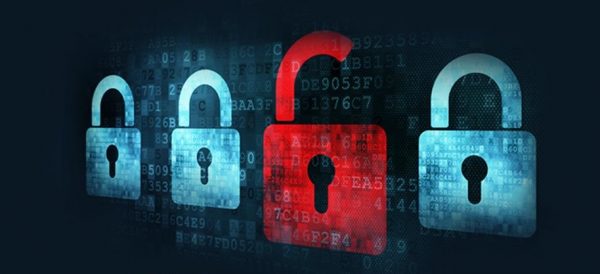What Is a Web Filter and Can It Help You Protect Your Passwords?

The problem of online security is often overblown, and you're sometimes left with the impression that the only way to stay safe is to throw your computer away and live like it's the 1970's. The internet isn't always a safe place, but staying away from it is not the solution. There are tools that can help you improve the security of your data. Web filters, for example, can be very useful both for you and for the people you love.
Table of Contents
What is a web filter?
Well, the name is about as descriptive as it gets – web filters are tools that go through the URLs you visit and help you stay away from content you probably don't want to see. They come in the form of browser extensions, desktop applications, or components on the local network infrastructure. Different web filters work differently.
How does a web filter work?
There are two types of web filters – the ones that rely on blacklists or whitelists, and the ones that analyze the content of a webpage before deciding whether or not to block it.
You have probably figured out how blacklists and whitelists work. A list of URLs tells the filter which websites you should see and which ones should be blocked. Often, the lists are sourced online and are constantly updated by security professionals, but they can also be modified locally to fit the needs of the people using the web filter.
The filters that don't rely on lists of URLs are a bit more complicated. When you follow a link or type a URL in the browser, they first analyze the content of the webpage you're trying to view, and if they decide that you might have ended up there by mistake, they block it. In a sense, this mechanism also relies on lists of words or other markers that would set a potentially unwanted website apart. What this means is that it would sometimes block websites that might not be on a blacklist yet. At the same time, it might fail to stop other pages that a blacklist-based filter would have no problem disabling.
Saying which one is the best is not really possible. The choice of web filtering solution should be dependent on the people who will benefit from it.
Who can make use of a web filter?
Let's start with the most obvious group of users that can benefit from a web filter – children. Kids' inexperience and their inability to understand the threats that lurk all around them make them particularly susceptible to clicking the wrong links, communicating with the wrong people, or opening the wrong files. What's more, the internet is awash with content that is not suitable for children.
It's by no means a panacea, but a reliable and properly configured web filtering solution can help your child stay away from adult and other inappropriate websites. Web filters are not for children only, though.
We have talked about how serious the cybersecurity problem is in the corporate environment, and very often, it is rooted not in poor management or sophisticated hackers, but in click-happy employees. Tackling the issue is not as easy as it might appear at first.
As an employer, you might be tempted to block online access to all non-work related resources is big, but this isn't going to win you any favors with your subordinates. With a web filter, your employees will still get to enjoy an occasional scroll through their social media feed, and at the same time, you will be able to sleep a bit better at night.
By setting up web filters for your children and employees, you are helping them stay safe. But can a web filter help you out?
An alarmingly large number of people dismiss web filters by saying that they are savvy enough to avoid falling for the tricks the cybercriminals try to pull. Others reckon that with billions of people using the internet, the chances of an attack landing at their particular doorstep are slim at best.
We don't want to blow the problem out of proportion, but the attitude described above shows that many users are underestimating the seriousness of the situation.
Web filters and your passwords
Phishing, for example, is one of the simplest forms of cybercrime, and yet, it continues to be the weapon of choice for many crooks. The fact that it exists means that it's effective both on regular people and on users who think that they know better. The attack itself might be straightforward, but the methods have evolved quite a bit over the last few years, and it's fair to say that in this day and age, no one is safe.
Having a web filter doesn't guarantee protection. You still need to be very cautious, especially when you see a website that asks for your username and password. Nevertheless, a web filtering solution can be helpful in many instances, so having one might not be such a bad idea.








